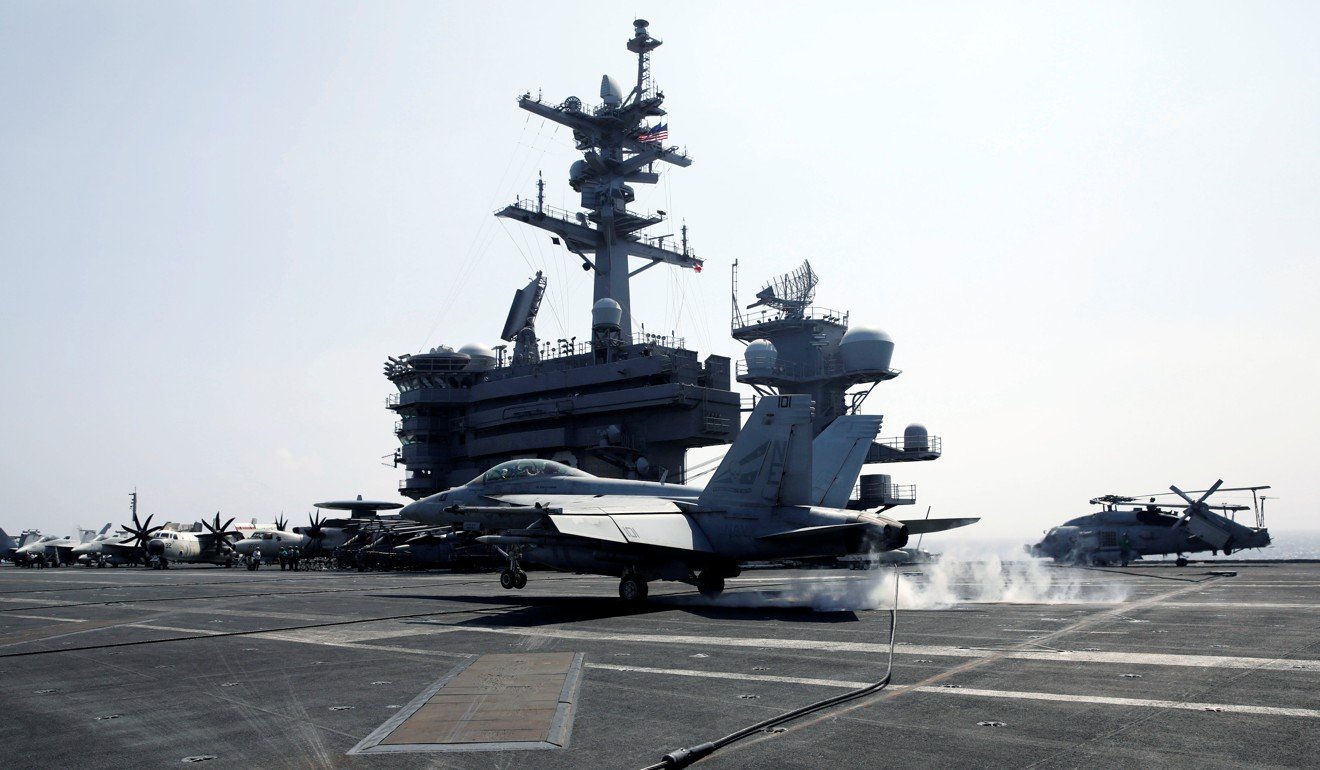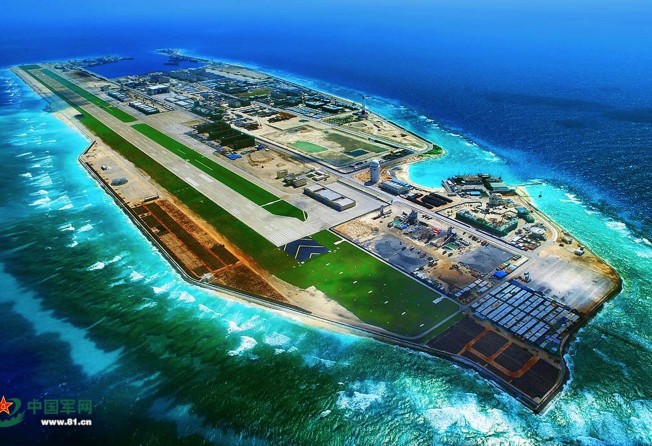
‘Time for tougher deterrence from China’ as US steps up patrols in South China Sea
- Chinese analyst says American forces should have to think twice before going ‘too far’ with their activities in the contested waters

China should reinforce “deterrence facilities” in the South China Sea as the United States and its allies mount a bigger challenge in the contested waters, a prominent Chinese specialist said.
“Tension in the South China Sea will rise in the coming year so we must deploy some defensive facilities that are able to overawe American warships entering nearby waters,” said Wu Shicun, head of the government-affiliated National Institute for South China Sea Studies.
On the sidelines of the Boao Forum for Asia in Hainan on Friday, Wu said the US would step up what it called freedom of navigation operations in the area with more frequent and wider-ranging manoeuvres this year.
“The Americans feel that they alone are not enough. They might also bring in allies such as Britain, Australia or Japan for exercises, or even create a regular joint action regime,” he told the South China Morning Post.
China claims most of the resource-rich South China Sea and uses the southern island of Hainan as a base for projecting power over and administering islands in the area. But the waters, the world’s busiest trade route, are also claimed by Vietnam, the Philippines, Malaysia, Brunei and Taiwan.
The US Navy has conducted 15 freedom of navigation operations in the South China Sea since October 2015, sailing warships near China-controlled islands to challenge what Washington calls Beijing’s excessive claims. Washington has called on its allies to do the same, and in September a British warship patrolled near a China-controlled island.

Wu said China needed to expand its deterrence to protect Chinese personnel and facilities on the islands and reefs from US forces. But such facilities would not target rival claimants, he said.
“The Americans would have to think twice before going too far, that we might take counteraction that could threaten their vessels,” Wu said.
In Singapore earlier this month, Admiral Philip Davidson, head of US Indo-Pacific Command, said China’s growing military activities in the region were “hazards” and the US would do more to counter Beijing’s influence.
US Secretary of State Mike Pompeo also said in Manila in February that the US was committed to ensuring the South China Sea remained open to all kinds of navigation.
But Wu said China’s efforts were defensive and in response to US military activities in the region.
In 2013, China embarked on a massive land reclamation project, expanding seven reefs in the Spratlys into large artificial islands. It built civilian and military facilities on the outposts and stationed troops on them, moves Washington said amounted to “militarisation” of the South China Sea.
Tensions rose in September when the USS Decatur was challenged by the Chinese destroyer Lanzhou during an operation near Gaven Reef, one of China’s artificial islands, narrowly avoiding a collision.
Also at the Boao Forum, Senior Colonel Zhou Bo expressed concern that the existing emergency mechanism between the Chinese and US navies was inadequate for managing any mishaps during more freedom of navigation operations in the South China Sea.
Zhou, director of the defence ministry’s Centre for Security Cooperation at the Office for International Military Cooperation, said the Code for Unplanned Encounters at Sea did not address accidents triggered by freedom of navigation operations, which were essentially “planned” manoeuvres.
“As our capacity grows, we will become less tolerant of provocations, and that’s where the risk lies,” Zhou said.